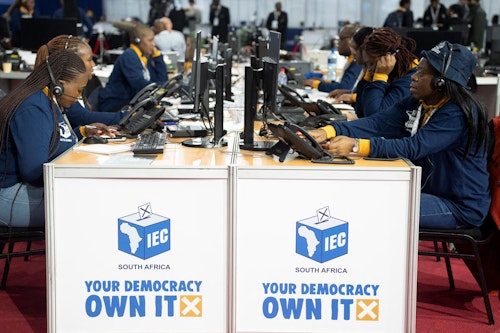For the first time since 1994, the African National Congress (ANC), which overthrew apartheid and laid the groundwork for democracy in the nation under Nelson Mandela, has not been able to win a majority.
This move foreshadows a significant change in South African politics, with coalition negotiations expected to influence the destiny of the country. The ANC’s demise was aided by widespread voter discontent brought on by excessive unemployment, crime, corruption, and subpar public services. In order to create the government, President Cyril Ramaphosa, who is running for a second term, must negotiate coalitions with opposition parties.

Source: Bloomberg
The way he responds to people’s worries will be critical in shaping South Africa’s future.With about 21% of the vote, the Democratic Alliance is a possible coalition partner because of its support for privatisation and market-friendly changes. Parties like Jacob Zuma’s uMkhonto weSizwe Party and the Economic Freedom Fighters, in sharp contrast, are advocating for drastic measures like nationalisation and land redistribution.
The ANC’s selection of partners will have a big influence on investor confidence and economic strategy. This historic change presents a chance to revitalise South Africa’s democracy and possibly increase accountability and responsiveness to the demands of the country’s people.The election’s outcomes will have a big impact on the world, especially since the country will be leading the Group of 20 (G20) later this year.
Source: FRANCE 24 English
Given its views on topics like the Gaza war and its historical ties to Russia, the make-up of the ruling coalition may have an impact on South Africa’s foreign policy. The alliance’s policies may have an effect on South Africa’s relationship with India, one of the main BRICS partners. The way South Africa handles these challenges will be closely watched by everyone.
What do you think about this? Comment below.

